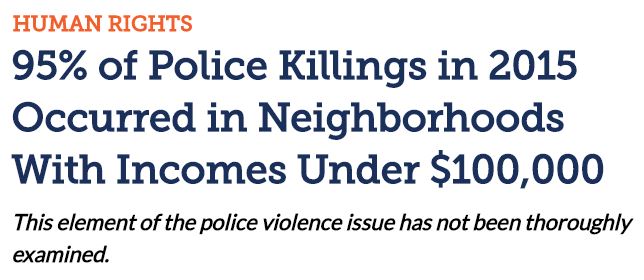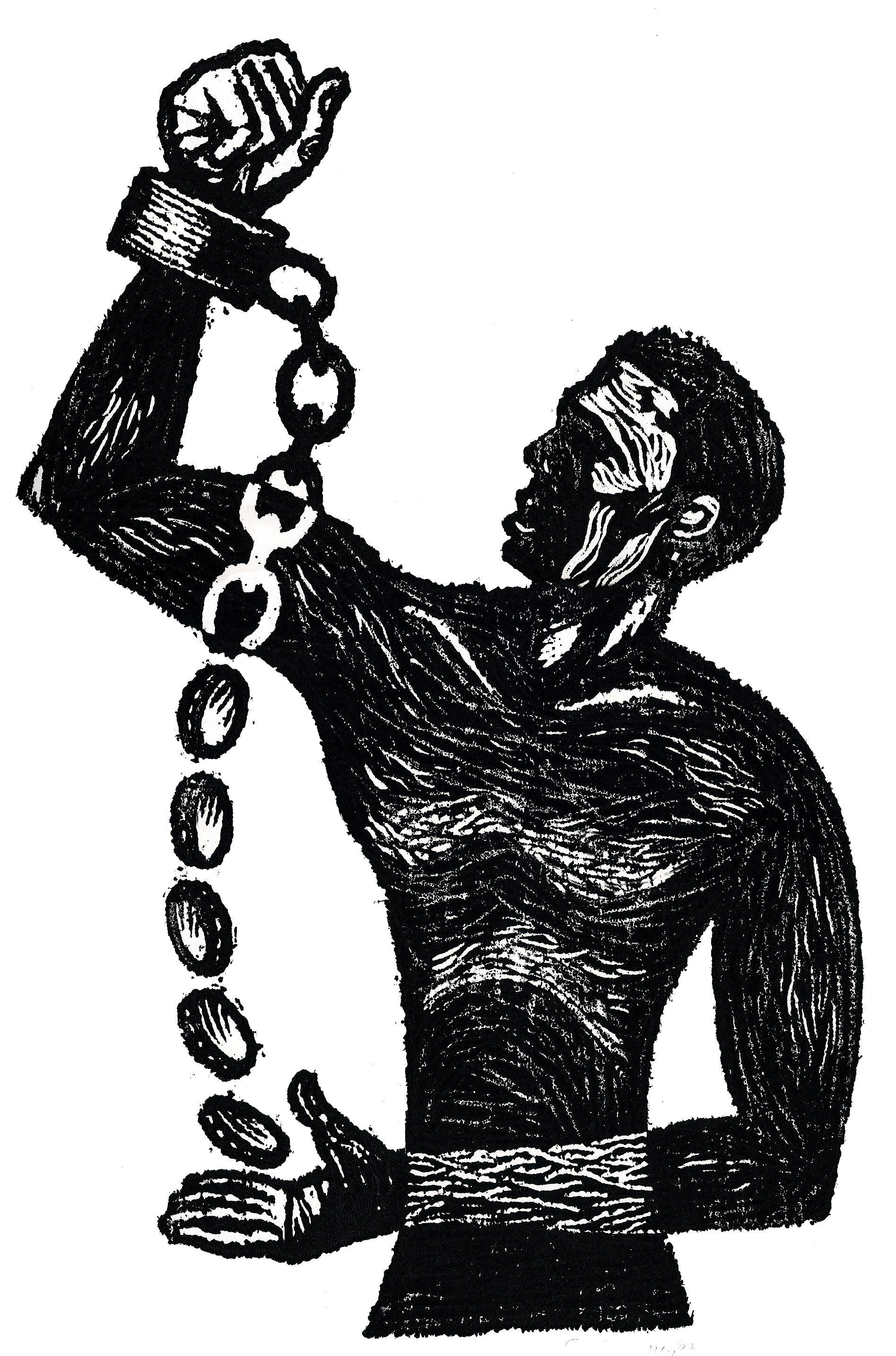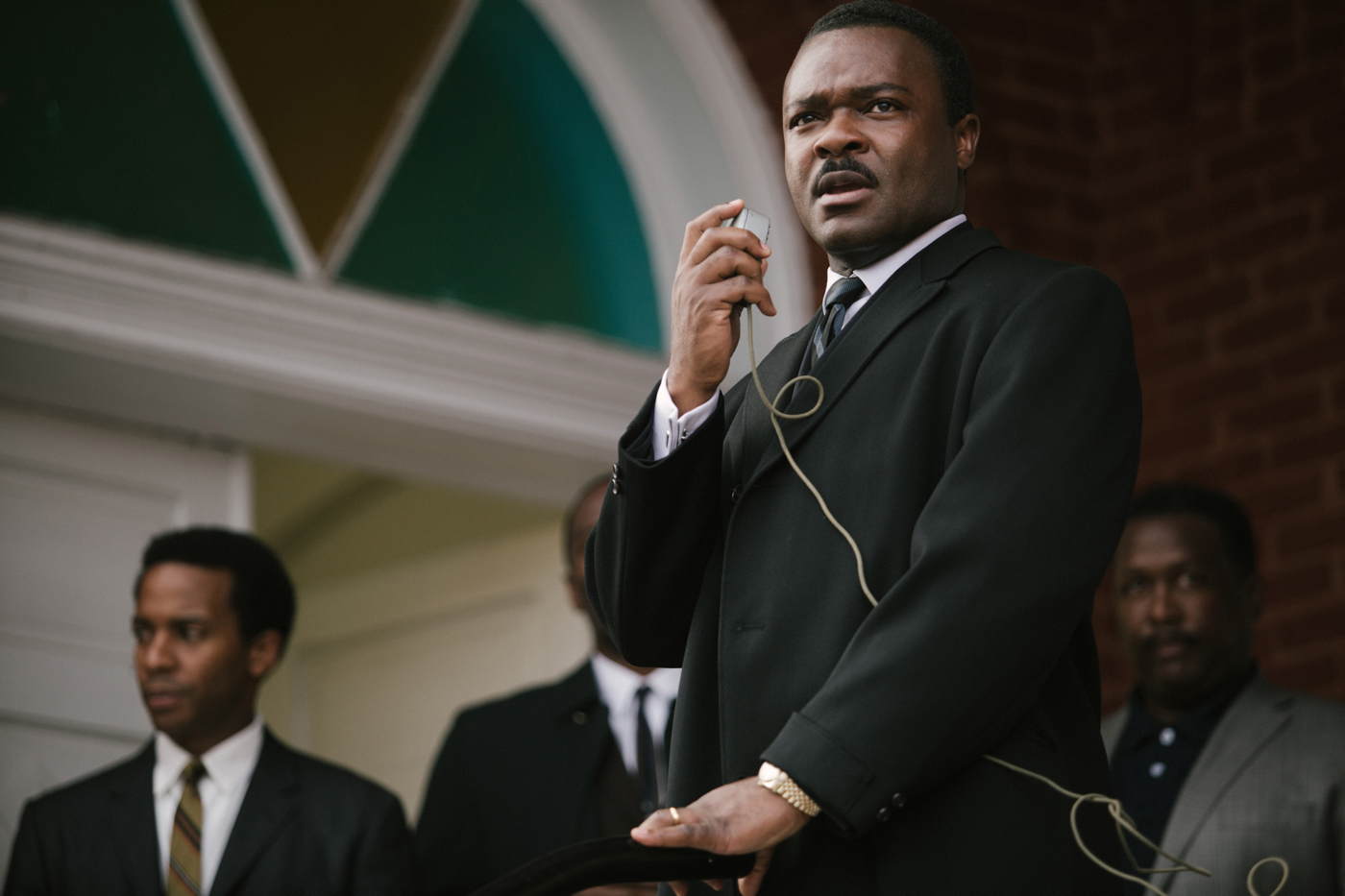Proliferation of this Kabuki theater politics among leftists stems in part from the dialectic of desperation and wishful thinking that underlies the cargo-cult tendency; it is commonly driven by an understandable sense of urgency that the dangers facing us are so grave as to require some immediate action in response. That dialectic encourages immediatist fantasies as well as tendencies to define the direct goal of political action as exposing, or bearing witness against, injustice.
A politics whose point of departure requires harmonizing the interests of the black poor and working class with those of the black professional-managerial class indicates the conceptual and political confusion that underwrites the very idea of a Black Freedom Movement. The prevalence of such confusion is lamentable; that it go unchecked and without criticism is unacceptable. The essays that appear in this section will critique this tendency and offer in its stead a vision of what we think ought to be.
My point is not in any way to make light of the gravity of the injustice or to diminish outrage about police violence….However, noting a decline—or substantial change in either direction for that matter—in the rate of police killings does underscore the inadequacy of reified, transhistorical abstractions like “racism” or “white supremacy” for making sense of the nature and sources of police abuse of black Americans. Racism and white supremacy don’t really explain how anything happens. They’re at best shorthand characterizations of more complex, or at least discrete, actions taken by people in social contexts; at worst, and, alas, more often in our political moment, they’re invoked as alternatives to explanation
But in a world where inequality has been increasing and where the fastest growing jobs are mainly the lowest paying ones, why should we be inspired by a vision that instead of promising to pay people better, promises only to make sure that the badly-paid are not disproportionately black or Latino? And that men are just as fucked as women? It’s easy to see the attractions of bourgeois anti-racism and bourgeois feminism for white women and people of color seeking to establish themselves among the (shrinking) bourgeoisie. From their standpoint we should be as concerned that black, Latino, or female-owned businesses are relatively poorer than their white or male counterparts as we are with the growing power of employers to obtain labor on increasingly exploitative terms.
The deeper appeal of reparations talk for its proponents is to create or stress a sense of racial peoplehood as the primary basis for political identity. This movement’s psychological project is grounded on two beliefs: first, that rank-and -file black people suffer from an improper or defective sense of identity, and second, that an important task of political action is to restore or correct racial consciousness that the legacy of slavery is supposed to have distorted or destroyed.
This doesn’t mean that gay marriage isn’t a good thing, and it doesn’t mean that we shouldn’t be vigilant in fighting all kinds of discrimination. It just means that fighting discrimination has nothing to do with fighting economic inequality, and that the commitment to identity politics has been more an expression of our enthusiasm for the free market than a form of resistance to it. You can, for example, be a feminist committed to equal pay for men and women and also be committed to equality between management and labor but, as the example of everyone who’s ever campaigned against the glass ceiling shows, you don’t have to be and aren’t likely to be.
It is of course a complete accident that the same year that marks the tenth anniversary of the failure of federally maintained levees, incompetent disaster relief, and rampant profiteering in the face of a relatively pedestrian hurricane known as Katrina should also mark the fiftieth anniversary of the publication by an obscure Assistant Secretary of Labor named Daniel Patrick Moynihan of The Negro Family: The Case for National Action…The chance of history that brought the anniversaries of the Moynihan Report and Hurricane Katrina together helps elucidate both the long-term implications of Moynihan’s dominance over a large portion of American discourse regarding inequality—a discourse that bears a great deal of responsibility for the effects of that fairly mundane storm—and the long historical temporalities that produced Katrina as a storm of unthinkable tragedy. Indeed, Katrina did not form to the southeast of the Bahamas on August 22, 2005. It formed when Moynihan helped consolidate the culture of poverty thesis in 1965. It formed when a conception of freedom grounded in contract, work-discipline, and various versions of moral economy defeated its multiple historical alternatives. It formed when American politics ceased to effectively challenge these defeats. In fact, if we further widen our lens, we…
Depicting federal aid as the only means by which to pursue an antipoverty agenda, the mayor [Moon Landrieu] also argued that diminishing program funds required the city to grow in ways that reflected the vested interests of those fleeing the city center in order to facilitate their return. Already in the process of shepherding tourism and real estate development interests to the city, this narrative willfully erased material inequalities produced by codified segregation and unequal access to housing, employment, and education as well as hardened conceptualizations that blamed poverty on individual choices. Thus, this logic rationalized the market relations of a gentrification economy by implying it was imperative to defray costs for serving the poor. Ultimately, local governing officials deployed these assumptions to sanction their own participation in the making of middle-class neighborhoods.
BY John Arena
The protestors, through chants, speeches and pamphlets, highlighted the glaring contradiction of a gathering dedicated to “equitable development and social justice” that was simultaneously honoring Richard Baron because of his role in overseeing the destruction of public housing in New Orleans and across the country. Policylink managed this contradiction by redefining social justice as the creation of “communities of opportunity,” rather than ones that guaranteed a right to housing and other basic needs, including the “right to stay put.” Thus, through this lens, “deconcentrating poverty” by refashioning public housing as “mixed income” developments that would include only a fraction of the previous public housing apartments, represented progress. How could they arrive at such an assessment? How did destroying poor people’s homes, and dispersing the former residents, become part of “best practices” for progressive social policy?
The victory condensed in the forms of participation enabled by the VRA is necessary—a politics that does not seek institutional consolidation is ultimately no politics at all—but not sufficient for facing the challenges that confront us in this moment of rampant capitalist offensive against social justice, but neither are the essentially nostalgic modalities of protest politics often proposed as more authentic than the mundane electoral domain. It is past time to consider Prof. Legette’s aphorism and engage its many implications. And that includes a warrant to resist the class-skewed penchant for celebrating victories won in the heroic moment of the southern civil rights movement as museum pieces disconnected from subsequent black American political history and the broad struggle for social justice and equality.






